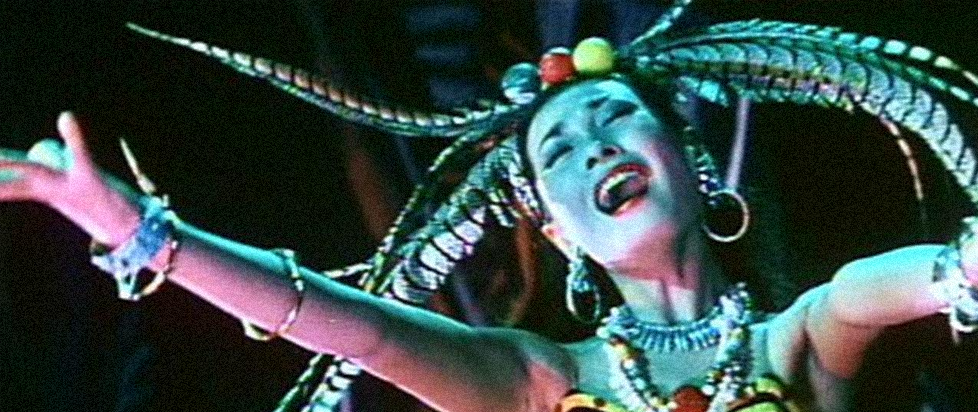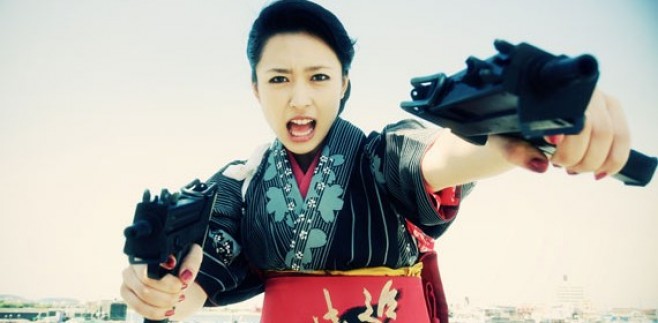
Tough Business: Giants and Toys (1958) and the Tragedy of Modernization
“I have faith in the modern age.”
Read much about Giants and Toys online and you’ll find a lot of discussion of its cynicism, its themes, and the “repulsive, hypocritical, and sickening mentality of modern corporativism,” as one Letterboxd reviewer put it. What you won’t find much about is the film’s actual plot, which makes a kind of sense, as Giants and Toys seems largely unconcerned with its own plot, in favor of a scathing exploration of its themes and the tragically inevitable arcs of its characters.
Prior to watching Giants and Toys, I had seen only one other film from the oeuvre of celebrated director Yasuzo Masumura – probably his best known, at least in the West – the horror flick Blind Beast, released more than a decade after Giants and Toys. At a glance, the two pictures seem extraordinarily different from one another, with Giants and Toys taking the form of a sort of screwball comedy, of the type that were popular in Hollywood in the decade before.
Indeed, Hitomi Nozoe, as the film’s both literal and figurative poster girl, self-consciously plays the role that would have gone to Audrey Hepburn if the film had been made in Hollywood. (There are even repeated allusions in the script to her “funny face.”) Masumura had previously directed both her and male lead Hiroshi Kawaguchi together in Kisses, the year before, which boasts key art that further reinforces the Hepburn parallel.
No Hollywood production of 1958 would have been content with an ending as ambiguous and tragic as this one, however, even if some of Hepburn’s movies probably should have boasted one. That’s because in Hollywood, this would have become a love story between Nishi (Kawaguchi), a young ad exec at a caramel firm, and Kyoko (Nozoe), the poor girl turned celebrity his agency grooms to help them outsell the competition. Certainly, Kyoko at least thinks she’s in love with Nishi for most of the picture, and in an American film, he would have ended up returning her attention.
Giants and Toys is not so pat, however. It’s tempting – and possibly accurate – to say that its view is less simplistic than that, but really, it’s just not interested in following that plot. The crush Kyoko has on Nishi, the disinterest he feels toward her in return, are just part of the larger tangle of tragedies in which all the characters are caught, and which are all, ultimately, the tragedy of capitalism.
In 1958, Masumura might just have been making a film that was intended to be acidly critical of Japanese society; the booklet that accompanies the new Blu-ray from Arrow Video quotes him as saying, “These ten years, Japanese have lived just to eat, to survive: although they’ve become superficially more or less Americanized, and powder themselves with the make-up of ‘liberty,” they are still the same Japanese, trapped in a society without freedom.” But in 2021, Giants and Toys feels, in many ways, like a movie that could have been made yesterday, about the decline of late-stage capitalism and the plight of the worker under such a crushing economic system.
Every figure in Giants and Toys is ultimately a tragic one, caught up in a web that is eating them all alive. The former director of publicity at World Confectionary, the candy company where Nishi works, is suffering from poor health brought on by overwork, while his up-and-coming replacement, who got where he is by engaging in a loveless marriage with the boss’s daughter, is gradually suffering the same fate.
Each and every person in the crowded cast is dying, cheating, betraying, sacrificing their honor or their dignity, all to sell just a few more pieces of caramel. The business of selling candy is presented with an endless barrage of war metaphors, and virtually every word out of anyone’s mouth sounds patently absurd, even though it is delivered with the conviction of a general about to lead a fatal charge. “Whoever sells more caramels survives!”
(That this also serves to underpin the absurdity of most actual war may well have been intentional. The booklet that accompanies the Blu also paints Masumura as a harsh critic of “the illiberal Japanese state” and the “catastrophe of World War II.”)
While U.S. audiences would probably never have gotten a portrait of capitalism as cynical as this one in 1958, audiences in Japan apparently weren’t ready for it, either. The film received both a critical drubbing upon its release – “too loud, too rude, and too garish,” the booklet says – and poor box office performance. It was kept alive through film discussion clubs over the years, though, and today it feels a bit like a “lost” classic ripe for rediscovery.
As part of their continued run of Daiei releases (I’ve covered a few of them previously), Arrow Video has helped with that rediscovery, bringing the flick out on a sharp, feature-packed disc complete with commentary and introductions by experts in Japanese cinema, not to mention the booklet I’ve already quoted from extensively, which also features an overview Masumura’s career.
Here at Unwinnable, I feel that it goes without saying that we’re a big fan of eating the rich, so naturally we like movies that turn a hungry eye toward the evils of capitalism. While there have been plenty of pictures that are critical of its exploitation and excess, however, I have seen few that lampoon its absurdity with quite so much deftness as this unusual and acidic flick.





